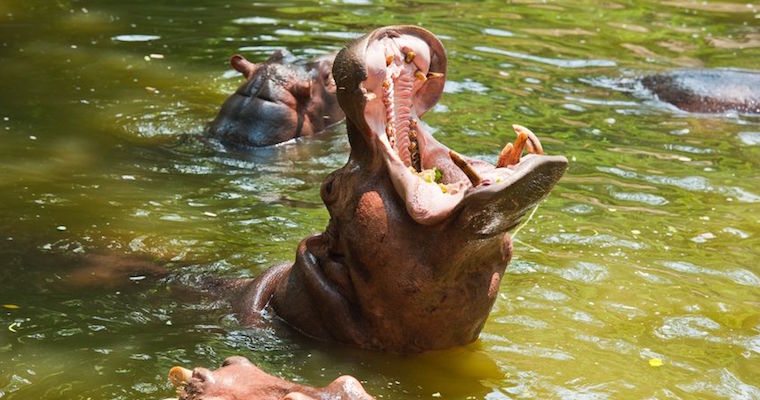
The 8 Rude "Animal" Types of Bosses
Ever work with someone who hogs all the credit? Or a parrot who never seems to have an original idea? I bet you can think of a few people who act more like zoo animals than the professionals they are supposed to be. And if you work in an environment with these types of characters, then you know that rudeness spreads like a contagion.
Boorish behavior usually starts with one person. If that person is the boss, rudeness can turn into an epidemic as fast as you can blow your own horn.
That is because when the boss blasts the team or dismisses effort, it sends the message that pushy, disrespectful behavior is not only acceptable — it is the only way to do business. You start to think that to get what you want, you need to assert your authority over others. Maybe even get primal. Act like a beast.
Now, I am not talking about honest, direct communication that sometimes might come with a roar. That is required for getting work done and helping people grow. Critiques can be tough. But great leaders temper their critical feedback with kindness.
I think most of us can agree that rudeness is both unpleasant and unnecessary. And unfortunately, it takes many forms.
Yes, there is the king-of-the-jungle boss who shouts at the team. But what about wasting time or ignoring requests? That is rude as well — dismissing the team’s time and potential.
Here are a few more of the rude creatures — ahem, leaders — I have encountered in the workplace:
The squirrel If you have something important to say, better make it quick. Distracted by any shiny object, you will have the squirrel’s attention for only so long before this rude rodent scrambles away after a new idea, leaving you hanging in mid-sentence. The cat The preening, strutting cat is a self-proclaimed ruler of the jungle — and makes sure everyone darn well knows it. Watch out, because this feline is prepared to pounce the moment someone speaks out of turn or challenges the cat’s authority.
The mule You may know a mule (or an entire pack of them) who stubbornly stands their ground and never budges from any battle, no matter how inconsequential. No sense reasoning with the mule, who will bray and argue until the sun goes down (or everyone gets tired and goes home).
The sloth If you have a meeting scheduled with this person, you had better clear your calendar. That is because the slothful boss never knows what time it is, and does not really care. Unresponsive, this person lacks the empathy to understand how rude it is to keep others waiting.
The hog You may know a leader who cannot resist wallowing in a good mud bath and looks forward to slinging some muck at others, just to see their reaction. The one thing this boss never turns their snout up at? Gobbling up all the credit.
The ostrich Nothing to see here, folks. The ostrich buries its head in the sand in order to avoid dealing with anything important happening with the team. When you avoid everything, there is no reason to intercede on anyone’s behalf — positive or negative.
The hippo All is calm on the surface. But you would do well to step lightly around the hungry, hungry hippo. You are never quite sure when this lurking predator might lash out without provocation (and you certainly do not want to be the next victim).
The deer What? A meek and mild deer — rude? But if you have ever worked with one, you know this skittish creature is more concerned with protecting its own hide than standing up for anyone else on the team. The leader’s strong survival instinct overrides any concern for others.
We all have moments when we say or do things we regret. We may growl a little too loudly or run from situations that call for strength, not cowardice — humbling reminders of the animal within us all.
But no matter how prevalent or accepted rudeness becomes in our society, we should never allow that behavior to become normal. As leaders, we need to demonstrate that kindness still matters and call out rudeness when we see it.
That means we have an extra responsibility to examine our own behavior, put others before ourselves, and keep our own animal tendencies under wraps.
Which animals have you spotted around the workplace?




